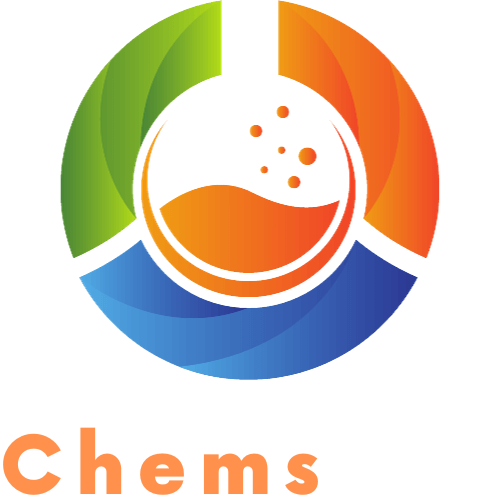Research chemicals for pain relief have gained significant attention in recent years. These chemicals offer a promising alternative to traditional pain management methods, providing relief for individuals suffering from chronic pain. In this article, we will unlock the power of research chemicals for pain relief and explore their different types, the science behind their effectiveness, safe usage practices, and their future in pain treatment.
Understanding the Role of Research Chemicals in Pain Management
Research chemicals play a crucial role in pain management by targeting specific receptors in the body’s nervous system. These chemicals interact with neurotransmitters, effectively blocking pain signals and providing relief. Unlike conventional pain medications, research chemicals offer a more targeted approach, reducing the risk of common side effects.
Research chemicals for pain relief have proven to be especially effective in managing chronic pain conditions such as fibromyalgia, neuropathy, and arthritis. By understanding the role of these chemicals, individuals can make informed decisions about incorporating them into their pain management strategies.
Exploring the Different Types of Research Chemicals for Pain
There are several types of research chemicals used for pain relief, each with its unique properties and benefits. Some commonly used research chemicals for pain management include:
- Opioids: Opioids are potent pain relievers that work by binding to opioid receptors in the brain and spinal cord. They are often prescribed for severe pain but carry a risk of addiction and dependence.
- Nonsteroidal Anti-Inflammatory Drugs (NSAIDs): NSAIDs are commonly used for pain management and have both anti-inflammatory and analgesic properties. They are effective in reducing pain and inflammation but may cause gastrointestinal side effects.
- Antidepressants: Certain antidepressants, such as tricyclic antidepressants and serotonin-norepinephrine reuptake inhibitors (SNRIs), have been found to be effective in managing chronic pain conditions by altering pain perception.
- Anticonvulsants: Anticonvulsant medications, initially developed for epilepsy treatment, are now widely used for neuropathic pain management. They work by stabilizing overactive nerve cells and reducing pain signals.
It is essential to consult with a healthcare professional to determine the most suitable research chemical for specific pain management needs.
The Science Behind Research Chemicals and Pain Relief
The science behind research chemicals and pain relief lies in their ability to interact with the body’s pain receptors and modulate the transmission of pain signals. These chemicals target various pathways involved in pain perception, such as the opioid, serotonin, and norepinephrine systems.
Research chemicals can effectively reduce pain by:
- Blocking pain signals from reaching the brain
- Reducing inflammation and swelling
- Altering pain perception
- Modulating neurotransmitter activity
Understanding the scientific mechanisms behind these chemicals’ pain-relieving properties enables healthcare professionals to develop more targeted and effective pain management strategies.
How to Safely Use Research Chemicals for Pain Management
When using research chemicals for pain management, it is crucial to prioritize safety. Here are some guidelines to ensure safe and effective usage:
- Consult with a healthcare professional: Seek guidance from a healthcare professional who specializes in pain management. They can provide personalized recommendations and monitor your progress.
- Follow dosage instructions: Adhere to the prescribed dosage and frequency to avoid potential side effects or complications.
- Monitor for side effects: Pay attention to any adverse reactions and promptly report them to your healthcare provider.
- Do not mix with other substances: Avoid combining research chemicals with other medications or substances without consulting a healthcare professional.
- Store properly: Keep research chemicals in a secure and controlled environment, following the storage instructions provided.
By following these safety measures, individuals can effectively incorporate research chemicals into their pain management routines while minimizing potential risks.
The Future of Research Chemicals in Pain Treatment
The future of pain treatment holds great promise for research chemicals. As scientific advancements continue, researchers are exploring new compounds and formulations that can provide even more effective pain relief with minimal side effects.
Additionally, ongoing studies are focused on developing targeted delivery mechanisms to enhance the efficiency and precision of research chemicals in pain management. This could include innovative drug delivery systems, such as transdermal patches or subcutaneous implants.
With further research and development, research chemicals have the potential to revolutionize pain treatment, offering improved quality of life for individuals suffering from chronic pain.
Research Chemicals: A Promising Alternative for Chronic Pain Sufferers
For chronic pain sufferers, research chemicals offer a promising alternative to traditional pain management methods. These chemicals provide targeted pain relief, potentially reducing the reliance on opioids and other medications associated with side effects and dependence.
By working closely with healthcare professionals and staying informed about the latest developments in research chemicals, individuals can explore this promising avenue for pain relief and improve their overall quality of life.
Frequently Asked Questions about Research Chemicals for Pain
Q: Are research chemicals safe for pain management?
A: Research chemicals can be safe for pain management when used under the guidance of a healthcare professional. It is essential to follow the recommended dosage and monitor for any adverse reactions.
Q: Can research chemicals be addictive?
A: Some research chemicals, such as opioids, carry a risk of addiction and dependence. It is crucial to use these chemicals as prescribed and under medical supervision to minimize the potential for addiction.
Q: Are research chemicals suitable for all types of pain?
A: Research chemicals can be effective for various types of pain, including chronic pain conditions like fibromyalgia and neuropathy. However, it is important to consult with a healthcare professional to determine the most appropriate research chemical for specific pain management needs.
Expert Advice on Research Chemicals for Pain
It is important to consult with a healthcare professional who specializes in pain management when considering the use of research chemicals. They can assess your individual needs, provide personalized recommendations, and monitor your progress. Additionally, always follow the prescribed dosage and safety guidelines to ensure safe and effective pain relief.
